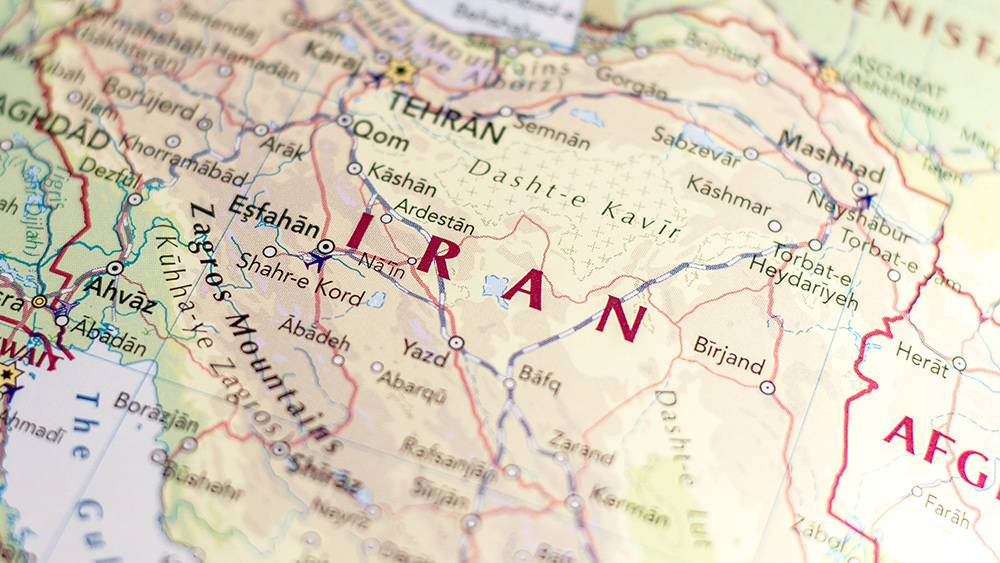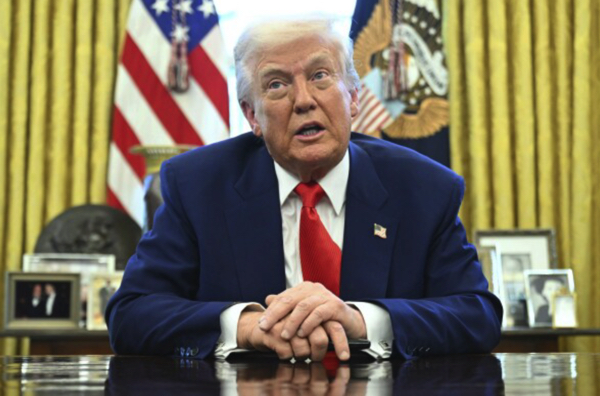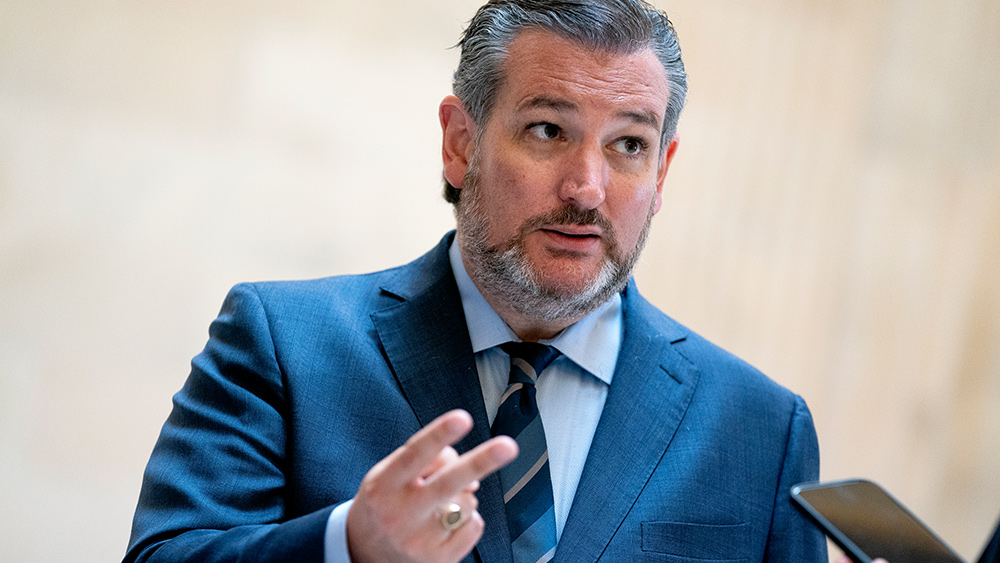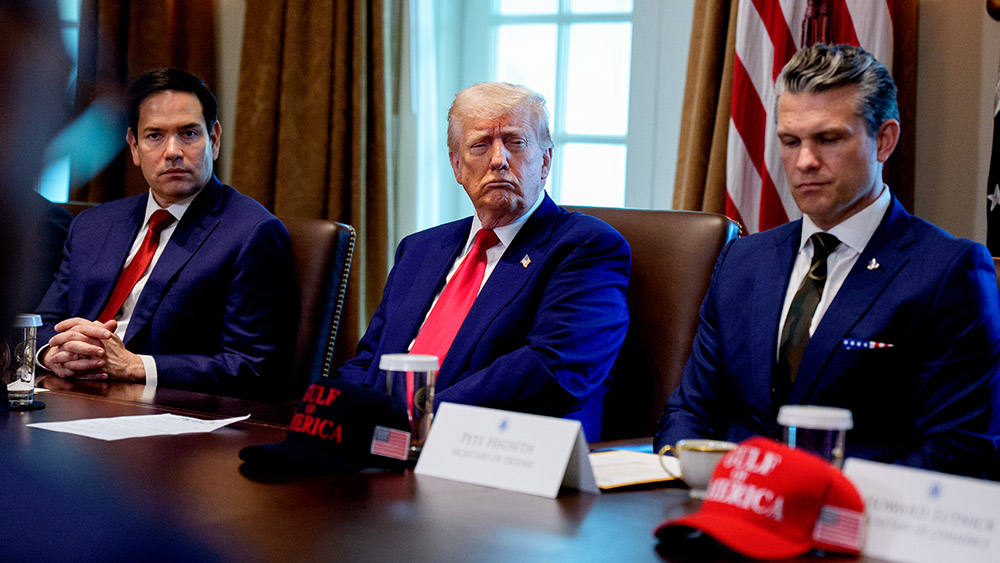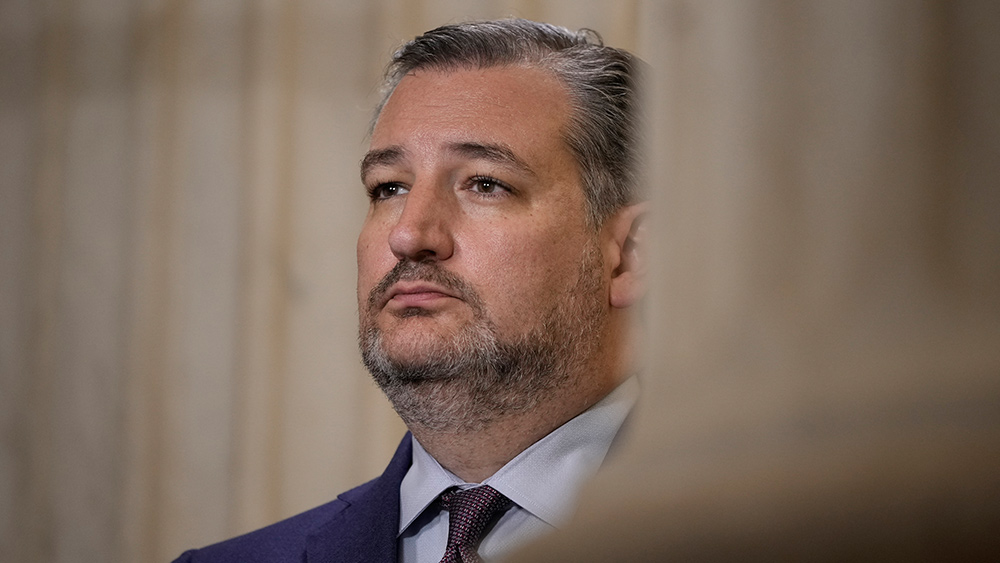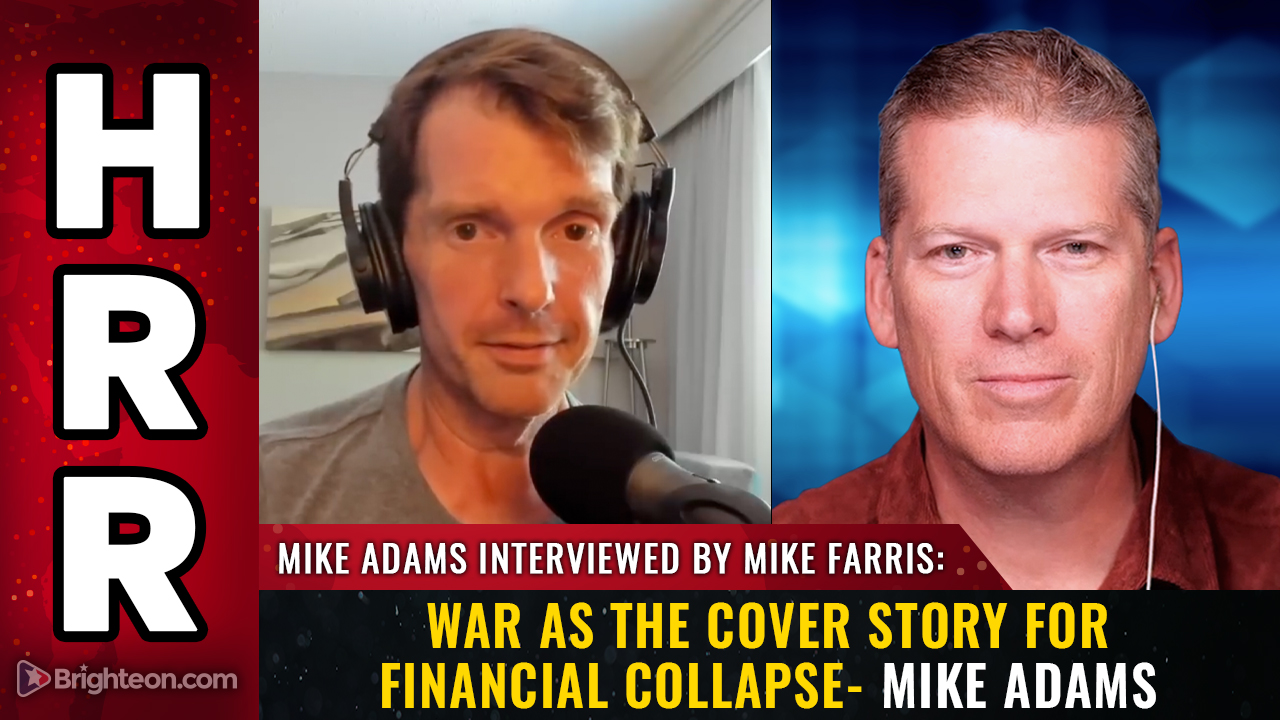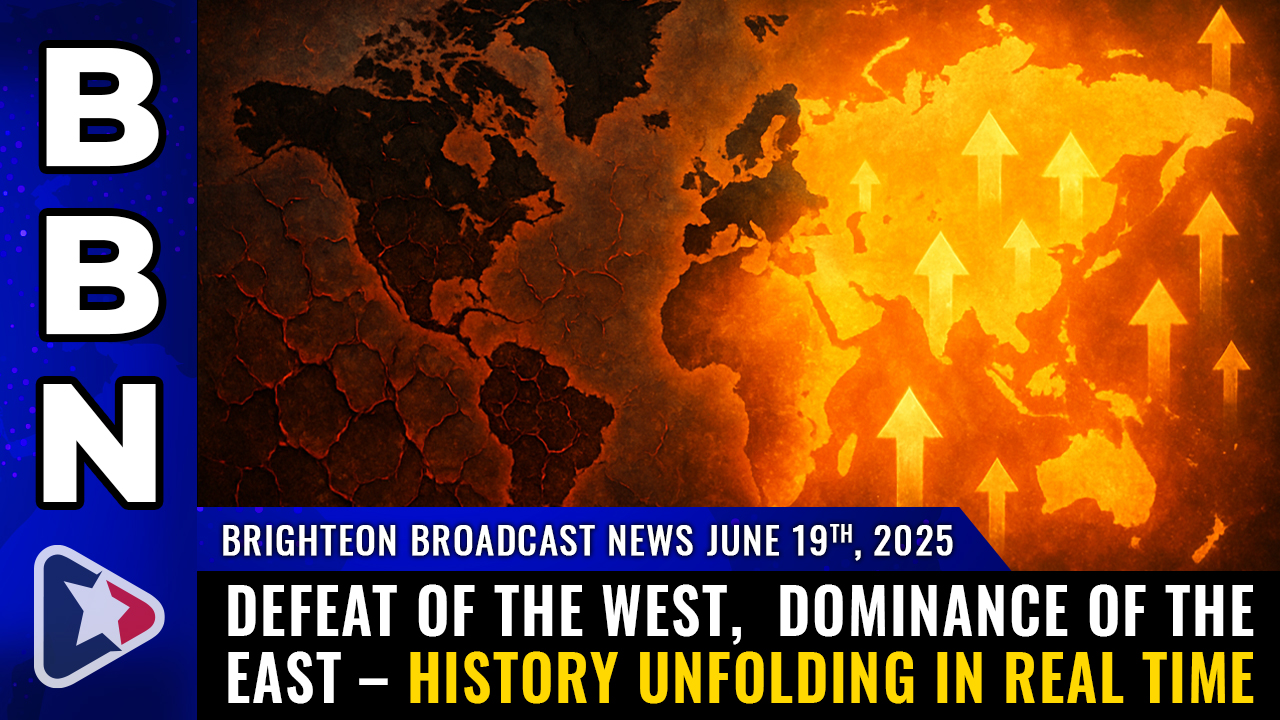Israel’s strike on Iran raises questions: Preemptive strike or aspirational regime change?
06/22/2025 / By Willow Tohi
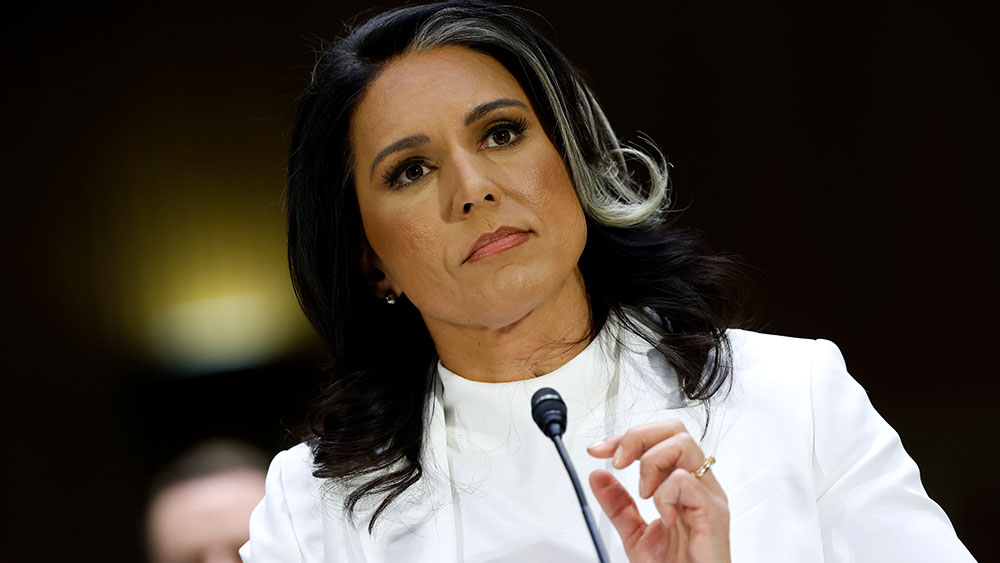
- Israel’s recent strike on Iran’s nuclear program is criticized as lacking evidence of imminent nuclear threat, recalling past unfounded claims.
- U.S. intelligence states Iran isn’t pursuing nuclear weapons, contradicting Netanyahu’s assertions.
- Israel’s broader aim may involve dismantling Iran’s regional influence over groups like Hezbollah and Hamas.
- Historical parallels to Iraq’s WMD claims fuel skepticism over legality and motives.
- Experts warn of escalating regional conflict and a potential nuclear arms race in the Middle East.
On Monday, June 16, Israeli Prime Minister Benjamin Netanyahu authorized a preemptive aerial assault targeting Iran’s nuclear facilities, claiming Tehran was “weeks from a bomb.” The strike, which U.S. intelligence and independent analyses dispute, has sparked global debate over its true aims: stemming nuclear proliferation or dismantling Iran’s regional influence. Netanyahu’s rhetoric echoes decades of warnings about an Iranian nuclear threat, culminating in an attack that opponents argue risks escalation without verifiable justification.
U.S. National Intelligence Director Tulsi Gabbard recently affirmed: “Iran is not building a nuclear weapon.” This official assessment, coupled with Iran’s compliance with the International Atomic Energy Agency (IAEA), has cast doubt over Israel’s urgent rationale. Meanwhile, critics note Netanyahu’s long-standing strategy to dismantle Iran’s “Axis of Resistance,” a network sustaining Hezbollah, Hamas and other groups opposing Israeli control in the region.
Netanyahu’s pretext: Regime change over nukes?
For four decades, Netanyahu has hyped an Iranian nuclear “existential threat,” even as Middle East security experts question this framing. Analysts like Robert Inlakesh argue the strike is less about weapons than regime change, citing Netanyahu’s post-attack call for Iranians to overthrow their government. “Israel’s true target is not merely nuclear disarmament but destabilizing Tehran’s alliances with regional adversaries,” Inlakesh said.
Military experts confirm Israel lacks the capacity to disable Iran’s deeply buried, mountain-based nuclear facilities. “This isn’t a precision strike,” says Andrew Feinstein, arms industry analyst. “Israel’s air force can’t achieve what even the U.S. failed to do in Syria.” Instead, Feinstein and others suggest the attack aims to fracture Iran’s regional influence, weaken its ballistic missile program and ignite internal dissent—objectives far beyond “deterrence.”
U.S. backing and intelligence contradictions
The U.S. faces charges of complicity as Israel bombs facilities under international oversight. Trump’s post-WWII-era sanctions and abandonment of the 2015 Nuclear Deal (JCPOA) have stoked distrust. Former President Barack Obama’s Iran envoy, Wendy Sherman, called Trump’s “maximum pressure” campaign “a disaster,” accelerating Tehran’s uranium stockpiles while isolating the U.S. diplomatically.
Gabbard’s testimony—to the Senate Intelligence Committee that “Khamenei suspended nuclear weapons work in 2003”—spotlights contradictions. Despite Netanyahu’s insistence, the IAEA’s August 2018 report found Iran in full compliance with the JCPOA. “These actions suggest the Netanyahu administration is either misinformed or intentionally misleading U.S. allies,” argues Columbia University’s Flynt Leverett.
A historical precedent: Iraq’s ghosts and legal questions
Critics draw parallels to the 2003 Iraq invasion, falsely justified by erroneous WMD claims. Legal scholars stress that under international law, a preemptive strike must meet strict criteria: an “imminent threat” with no other defense option. “Iran is neither,” says Harvard law professor Jack Goldsmith. “Israel’s aggression risks setting a dangerous precedent, justifying unilateral wars on shaky evidence.”
The U.S. has avoided military involvement for now, though diplomatic validation emboldened Netanyahu. Trump, who expanded sanctions and bombed Syria, stated he “supports Israel’s right to defend itself,” without acknowledging intelligence gaps.
Geopolitical fallout: Will the Middle East burn?
Analysts warn of unintended consequences. Iran’s potential nuclear acceleration, regional ground battles with Hezbollah or Hamas, and a broader arms race in the Persian Gulf loom large. Writing in The Atlantic, Peter Beinart notes Netanyahu’s decision could alienate Europe, which values stability over regime change.
Meanwhile, Iran’s Supreme Leader Ayatollah Khamenei has pledged retaliation, while China and Russia urge de-escalation—a call ignored by Netanyahu. “This isn’t just a regional war,” says former U.S. Ambassador Ryan Crocker. “It’s a clash between sovereignty and foreign intervention, with no easy end in sight.”
Dancing on the edge of a continental fault line
As smoke rises over Iran, the world watches a confrontation rooted in misinformation, geopolitical ambitions and the deepening divide between international norms and unilateral action. Whether Netanyahu’s gamble secures Israeli objectives or triggers a Pandora’s box of destabilization remains unclear. One certainty emerges: the Middle East’s future hangs on the answers.
“Israel has chosen sides,” says historian Greg Grandin. “But history shows interventions built on sand often sink.”
Sources for this article include:
Submit a correction >>
Tagged Under:
chaos, dangeorus, Hamas, Hezbollah, Iran, Israel, military tech, national security, nuclear, risk, Tyranny, violence, weapons technology, WWIII
This article may contain statements that reflect the opinion of the author
RECENT NEWS & ARTICLES
COPYRIGHT © 2017 RISK NEWS


